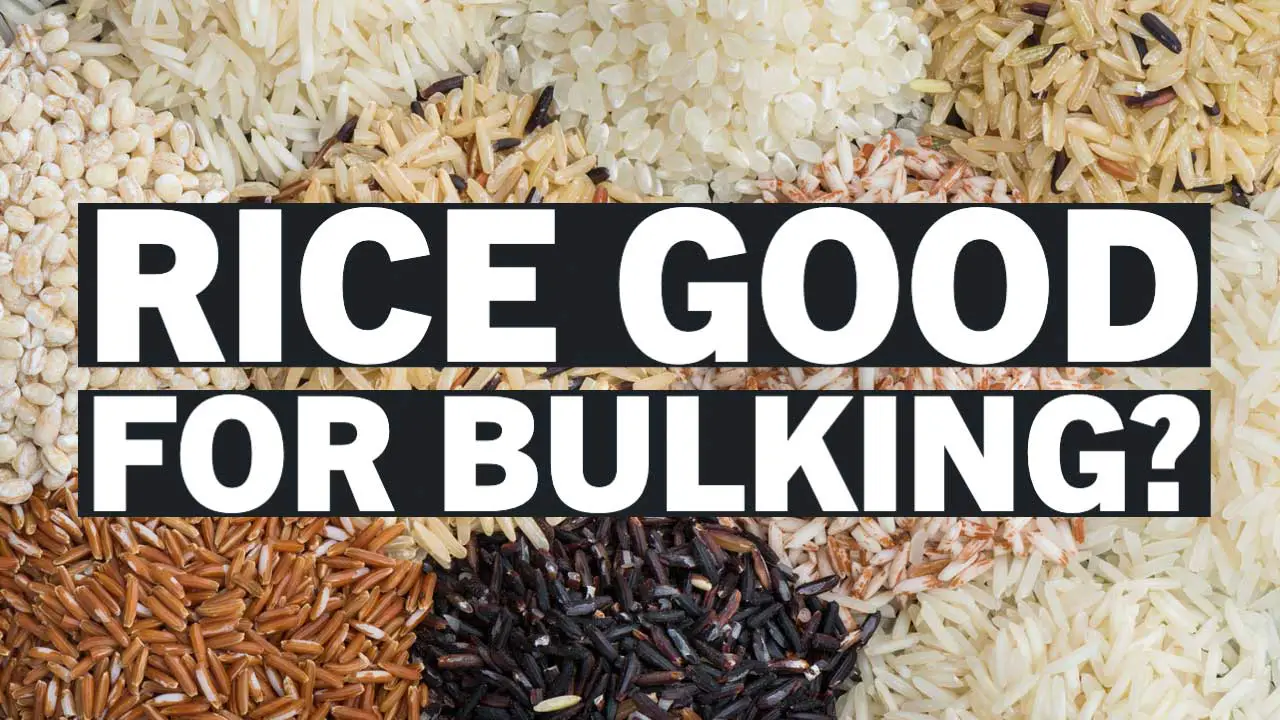The Most Popular Fad Diets Uncovered: The Essential Guide

ListedFit is reader-supported. When you buy through links on our site, we may earn a small commission.
Fad diets have long been a topic of discussion, capturing the attention of individuals seeking quick and effective weight loss methods.
They often promise rapid results by encouraging the elimination or restriction of certain food groups, drastically altering one’s caloric intake, or promoting unsustainable dietary changes.
While these diets capture the imagination and give hope to many, there is more to consider when evaluating whether such an approach is best for achieving healthy, long-term weight management.
Quick Summary

It’s important to understand popular fad diets to make informed decisions about weight loss. These diets often lack scientific evidence and can be harmful to health.
From the high-protein Atkins diet to the trendy keto diet, fad diets promise significant weight loss but may sacrifice balanced nutrition.
This can have long-term consequences that impact weight and overall well-being.
Key Takeaways
- Fad diets often promise rapid weight loss but lack scientific support
- Popular fad diets can pose health risks and potential long-term consequences
- Choosing a sustainable and balanced approach to weight loss is essential for overall wellbeing
Table of Contents
Exploring Fad Diets
Fad diets often promise fast weight loss and dramatic results by adhering to specific dietary rules. While these diets may have a large following, it is important to exercise caution, as some aspects may be potentially harmful or unsustainable.

One common characteristic of fad diets is the guarantee of rapid weight loss, often exceeding 2 pounds per week. These diets often come with strict rules and guidelines that restrict certain food groups or promote specific nutritional ratios. Additionally, fad diets are often associated with the sale and promotion of books or products that claim to support the diet’s effectiveness.
There are numerous well-known fad diets that have gained popularity in recent years. Some examples include:
- Low-fat diets: These diets promote a lower intake of fat in favour of carbohydrates and proteins, believing that avoiding fats can lead to weight loss.
- Vegan and vegetarian diets: While these diets may be followed for ethical or environmental reasons, some people adopt them for the sole purpose of losing weight.
- Low-carbohydrate diets: These diets, such as the Atkins Diet or Keto Diet, focus on reducing carbohydrate intake and increasing protein and fat intake.
- Palaeolithic diets: Also known as the Paleo Diet, this fad diet suggests that individuals should only consume foods that were available during the Paleolithic era.
- Intermittent fasting: This diet trend involves alternating periods of eating and fasting, with various methods like the 5:2 diet, where individuals eat normally for five days and follow a restricted eating plan for two days.

In terms of their effectiveness, fad diets may lead to initial rapid weight loss, but it can be challenging to maintain such diets in the long run. A constant shift between various fad diets can result in a lack of essential nutrients and a loss of muscle mass, rather than fat.
Many health experts recommend a more balanced approach to weight loss, centred around consuming a variety of whole, natural foods, leaning towards plant-based products, and minimising the intake of processed options.
You have to remember that there is no singular, magical solution to achieving a healthy lifestyle and maintaining a stable weight. Instead, finding a sustainable, balanced diet tailored to individual needs will serve as a basis for long-term health and well-being.
What Are the Most Popular Fad Diets?

Keto Diet
The Keto Diet is a popular low-carb, high-fat diet designed to help people achieve weight loss. The main principle of this diet is to consume low amounts of carbohydrates to put the body into a state of ketosis, where it burns fat instead of glucose for energy. Fat accounts for 90% of calories, protein for 6%, and carbs for 4%.
Paleo Diet
The Paleo Diet, also known as the caveman diet, is based on the idea of consuming foods our ancestors would have eaten during the Paleolithic era. This diet focuses on whole foods such as fruits, vegetables, lean meats, and nuts while avoiding processed foods, dairy products, and grains.
Atkins Diet
The Atkins Diet, pioneered by Dr Robert Atkins in the 1960s, is a low-carbohydrate, high-protein, and moderate-fat diet designed to help people lose weight. It involves four phases, starting with cutting carbohydrates drastically and gradually reintroducing them in controlled quantities.
South Beach Diet
Developed by Dr. Arthur Agatston, the South Beach Diet is a 3-phase low-carb, high-protein diet designed to help people lose weight and improve heart health. Initially, the diet cuts out carbohydrates such as bread, pasta, and rice, gradually reintroducing them in later phases.
Zone Diet
Created by Dr. Barry Sears, the Zone Diet aims to help people lose weight and reduce inflammation by balancing macronutrients. It promotes a diet comprising 40% carbohydrates, 30% protein, and 30% fats from healthy sources.
Intermittent Fasting
Intermittent Fasting is a popular diet trend that involves cycling between periods of eating and fasting. There are several methods, such as the 16:8 (fasting for 16 hours and eating during an 8-hour window) and alternate-day fasting. This approach has been linked to weight loss and improved metabolic health.
5:2 Diet
The 5:2 Diet, also known as the Fast Diet, involves eating normally for 5 days each week and consuming a reduced-calorie diet (about 500-600 calories) on 2 non-consecutive days. This diet has been associated with weight loss and improvements in health markers.
Weight Watchers
Weight Watchers is a well-known weight management program that uses a points system to encourage people to make healthier food choices.

Every food has a point value based on its nutritional content, and participants are given a daily target based on their weight loss goals. Fruits, vegetables, and lean proteins are encouraged, while processed and sugary foods are discouraged.
Important: The Hidden Health Risks and Concerns
Many popular fad diets often emphasize one food group or eliminate others, leading to an imbalance in overall nutrition.
These diets may lack essential nutrients, potentially putting an individual at risk for deficiencies.

It is important to maintain a balanced diet, rich in vitamins, minerals, and fiber to support optimal health. Additionally, eliminating certain food groups may increase the risk of developing chronic conditions, such as heart disease and diabetes.
Fad diets often promote rapid weight loss, which could lead to nutritional deficiencies as the body struggles to adapt to the dramatic changes in dietary intake. Consuming insufficient amounts of nutrients can negatively impact overall health and well-being. For instance, inadequate fiber intake may contribute to digestive issues, while a lack of essential vitamins and minerals can affect energy levels, immune function, and bone health.
The long-term effects of following fad diets may cause more harm than good. Some fad diets, for example, promote a high-fat, low-carbohydrate approach, which may be associated with increased risks of developing chronic conditions such as heart disease. A registered dietitian or a cardiologist from the American College of Lifestyle Medicine could provide guidance on adopting sustainable, healthful eating patterns that reduce the risk of chronic diseases.
It is crucial to note that some fad diets may initially offer appealing results, such as reduced hunger and quick weight loss. But these outcomes might not be sustainable in the long run, as the body requires a variety of nutrients to function optimally.
Not getting the right nutrition in the right amounts can of course lead to fatigue, irritability, and even an increased risk of developing chronic conditions.
Why You Should Focus on a Balanced Diet

A balanced diet is essential for maintaining overall health and well-being.
The idea is to consume a variety of whole foods that provide a mixture of the necessary nutrients you need, rather than the restrictive nature of fad diets.
A healthy eating pattern includes a combination of fruits, vegetables, whole grains, lean protein sources, and healthy fats such as olive oil.
In contrast to fad diets, which are often restrictive and unsustainable in the long term, a balanced diet accommodates diverse food preferences, such as vegetarian or vegan diets.
Incorporating nutrient-dense foods, such as fruits, vegetables, and whole grains, not only ensures adequate intake of essential vitamins and minerals but also helps control calorie intake.
Eating nutrient-dense foods can aid in weight management by keeping individuals full and satisfied without consuming excessive calories through snacking.
Following a balanced diet may also help prevent chronic health conditions. For instance, it promotes optimal heart health by including olive oil and red wine in moderation, which are known for their antioxidant properties.
Additionally, consuming appropriate portions of healthy carbohydrates, proteins, and fats can help maintain stable blood sugar levels and support overall metabolic function.
While low-carb diets have gained popularity in recent times, a balanced diet approach allows for adequate consumption of carbohydrates from whole food sources such as fruits, vegetables, and whole grains. This ensures that you get proper nourishment and energy without the need for extreme restriction.
To sum up, having a balanced diet and being physically active is vital for a healthy lifestyle. It has many health benefits, allows you to eat what you like, and helps with managing your weight in a sustainable way.
Frequently Asked Questions
What Are The Top 5 Fad Diets Right Now?
1. Keto Diet – A high-fat, low-carb diet that promotes ketosis to burn fat instead of carbohydrates for energy.
2. Paleo Diet – A diet based on the concept of eating like our ancestors, primarily focusing on whole foods and eliminating grains and processed foods.
3. South Beach Diet – A low-carb, high-protein diet that focuses on healthy fats and lean meats, with an emphasis on unprocessed, whole foods.
4. Intermittent Fasting – An eating pattern where individuals cycle between periods of eating and fasting, with various approaches such as 16:8 or 5:2.
5. Whole30 Diet – A 30-day elimination diet that removes sugar, alcohol, grains, legumes, dairy, and processed foods to identify food sensitivities and promote overall health.
How effective is the keto diet for weight loss?
The keto diet can be effective for short-term weight loss as the body begins to burn fat for energy when carbohydrates are restricted.
Some people might experience significant weight loss initially, but the long-term success varies, and maintaining such a strict diet can be challenging for many individuals.
It is essential to consult with a healthcare professional before embarking on a keto diet.
What are the health impacts of the South Beach Diet?
The South Beach Diet focuses on whole foods and healthy fats, which can be beneficial for overall health and weight management.
But much like other low-carb diets, it might be challenging to maintain in the long term.
The South Beach diet discourages consuming some fruits and higher-carb vegetables, which might lead to nutrient deficiencies if not properly managed.
Is a juice cleanse a healthy and sustainable way to lose weight?
A juice cleanse typically involves consuming solely fruit and vegetable juices for a short period, potentially leading to quick weight loss.
But the thing is, this is generally not considered a healthy or sustainable way to lose weight as it lacks essential nutrients, and most weight loss is due to water and muscle loss rather than fat loss.
Cleanse diets can lead to nutrient deficiencies, muscle atrophy, and unhealthy relationships with food.
Why was the Atkins Diet so popular?
The Atkins Diet gained popularity because it provided rapid weight loss results by severely restricting carbohydrate intake and promoting high protein, high-fat consumption.
Some people found this way of eating more satisfying and easier to adhere to than low-fat diets.
But the long-term health effects of such a restrictive diet remain debated, and many healthcare experts caution against extreme dietary approaches.
What are some risks associated with the grapefruit diet?
The grapefruit diet, a short-term, very low-calorie diet, entails consuming a grapefruit before each meal.
While grapefruits are a healthy source of vitamins and fibre, the diet poses risks, including nutrient deficiencies and insufficient calorie intake.
This diet’s restrictive nature might lead to unhealthy and unsustainable weight loss, muscle loss, and the potential for weight regain once you stop doing this diet.
Author
- Danny Loeb is a qualified Personal Trainer, Fitness Model and Writer. He enjoys blogging about health and fitness, messing around with Photoshop, and sharing his experiences with everyone.
Latest entries
 NutritionFebruary 6, 2024What Are Fillers in Supplements? – Unveiling Inactive Ingredients
NutritionFebruary 6, 2024What Are Fillers in Supplements? – Unveiling Inactive Ingredients FitnessAugust 23, 2023Best Post-Workout Foods: Great Ideas for Recovery and Results
FitnessAugust 23, 2023Best Post-Workout Foods: Great Ideas for Recovery and Results BulkingJuly 26, 2023Is Rice Good for Bulking? Unveiling the Truth
BulkingJuly 26, 2023Is Rice Good for Bulking? Unveiling the Truth CultureJuly 15, 2023Why Do People Hate Planet Fitness? Read This Before You Join!
CultureJuly 15, 2023Why Do People Hate Planet Fitness? Read This Before You Join!
Affiliates:
This post may contain affiliate links that at no additional cost to you, the site may earn a small commission. We only recommend products we would use ourselves and all opinions expressed on this site are our own.
General Advice:
The information provided in this article is for general informational purposes only. It is not intended as a substitute for professional advice. Always consult with a qualified healthcare professional before starting any new diet, exercise program, or making changes to your health routine.
Accuracy Advice:
While we strive to provide up-to-date and accurate information, the content in this article may not reflect the most current research or medical guidelines. We encourage readers to do further research and consult with professionals for more personalized advice.
Our Recommendations:
The products and services mentioned in any of our articles are recommended based on our independent research and personal experience. We are not sponsored by any company. We aim to suggest products and services we believe are of high quality and could be beneficial to our readers.






